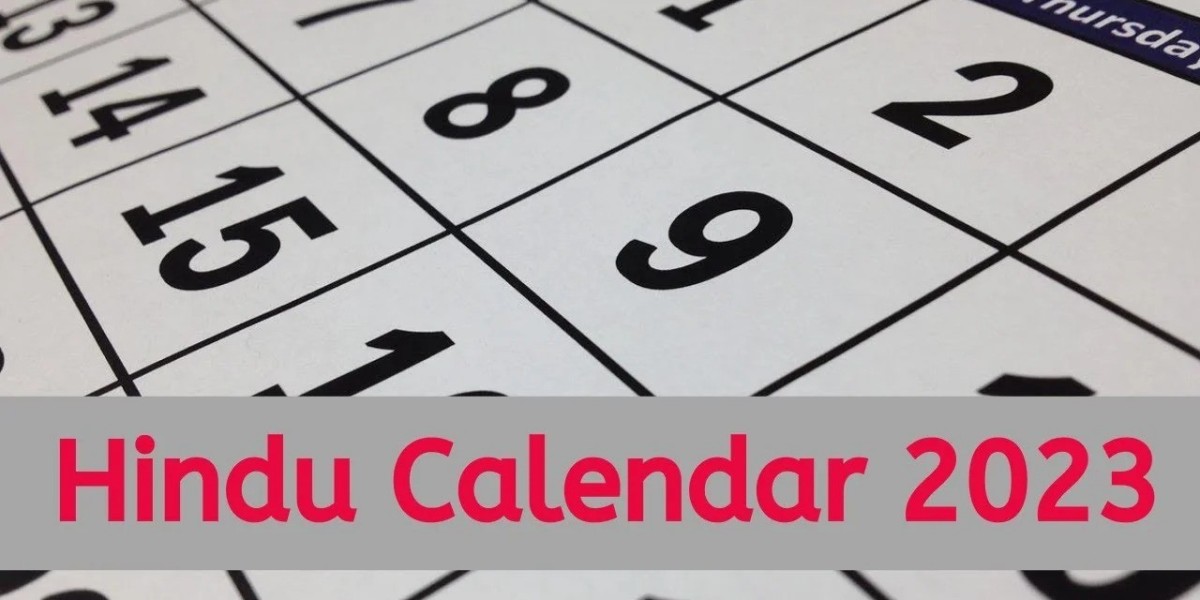The Hindu calendar, a testament to the ancient wisdom and cultural richness of India, serves as a guide for festivals, rituals, and daily life for millions of people. Rooted in the cycles of the moon and the positions of celestial bodies, the Hindu calendar is a fascinating blend of astronomy, mythology, and spirituality. In this article, we'll explore the intricate layers of the Hindu calendar, its significance, and its role in shaping the lives of millions.
The Lunisolar Calendar System
A Fusion of Solar and Lunar Cycles
The Hindu calendar is known as a "lunisolar" calendar, meaning it combines both lunar and solar cycles. The lunar aspect is reflected in the calculation of months, while the solar aspect determines the year's length.
The Importance of Tithi
A fundamental unit of the Hindu calendar is the "tithi," which represents the lunar day. Each tithi is associated with specific rituals, and the calendar's primary focus is on the tithis' waxing and waning phases.
The Hindu New Year: A Time of Renewal
Various Regional New Years
The Hindu calendar is incredibly diverse, with different regions and communities celebrating the new year on various dates. One of the most widely celebrated new years is "Gudi Padwa," observed in the Indian state of Maharashtra, symbolizing the start of the spring season.
The Mythological Significance
The new year is often steeped in mythology, connecting the present with ancient legends. It's a time of renewal, when people cleanse their homes, wear new clothes, and partake in festive meals and rituals.
Festivals and Panchang
The Panchang: Your Guide to Time
The "panchang" is a Hindu almanac that provides essential information about lunar days, festivals, planetary positions, and auspicious times for various activities. It's a valuable tool for individuals and communities to plan their events and ceremonies.
Festivals: A Reflection of Culture
The Hindu calendar is brimming with festivals, each carrying its own significance, mythology, and traditions. From Diwali, the festival of lights, to Holi, the vibrant celebration of colors, these festivals connect people to their roots, foster community bonds, and offer moments of joy and devotion.
A Time for Spirituality and Reflection
Auspicious Times for Worship
The Hindu calendar not only guides daily life but also plays a pivotal role in spiritual practices. It highlights specific days for worship, meditation, and seeking divine blessings. Certain tithis are considered highly auspicious for performing rituals and seeking spiritual growth.
The Seasons of Life
The calendar also reflects the cyclical nature of existence. It acknowledges the passage of time, the changing seasons, and the impermanence of life. This understanding encourages individuals to reflect on their actions and aspirations.
Unveiling the Future: FAQs
1. How is the Hindu calendar different from the Gregorian calendar?
The Hindu calendar is lunisolar and follows the positions of the moon and the sun. It's deeply rooted in cultural and religious traditions, while the Gregorian calendar is a purely solar calendar used for civil purposes worldwide.
2. Can I use the Hindu calendar to plan my personal events?
Absolutely! The panchang provides essential information for planning activities, ensuring they align with auspicious times.
3. Are there variations in the Hindu calendar across regions?
Yes, the Hindu calendar has regional variations, with different communities celebrating festivals and new years on various dates.
4. How can I learn more about specific Hindu festivals?
There are many resources available, including books, websites, and local cultural events. Engaging with your local Hindu community is a great way to learn about these festivals.
5. Can the Hindu calendar be used by people of other faiths for spiritual purposes?
The Hindu calendar can provide valuable insights into spirituality and the cyclical nature of life. However, its rituals and religious aspects may be specific to Hindu practices.
In conclusion, the Hindu calendar is a profound expression of time, culture, and spirituality. Its intricate system reflects the harmonious relationship between the cosmos and human life, providing a roadmap for rituals, celebrations, and spiritual growth. As millions around the world continue to follow this ancient tradition, the Hindu calendar remains a vibrant thread connecting generations and enriching lives.








